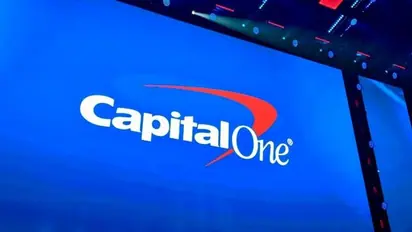Capital One-Discover deal: Two of largest credit card companies in the United States are set to merge

Synopsis
Capital One, backed by Warren Buffett, announces the acquisition of Discover Financial Services in a landmark all-stock deal valued at $35.3 billion. The merger aims to create a robust payments network to compete with industry giants like Visa and Mastercard
Two of the largest credit card companies in the United States have combined following the acquisition of Discover Financial Services by Warren Buffett-backed consumer lender Capital One. On February 19, Capital One revealed plans to acquire Discover Financial Services in an all-stock deal valued at $35.3 billion.
Strategic Alliance for Market Dominance
The merger aims to create a formidable payments network capable of rivalling industry giants like Visa, Mastercard, and American Express, according to Richard Fairbank, Chairman and CEO of Capital One.
Deal Terms and Ownership Structure
Under the agreement, Discover shareholders will receive 1.0192 Capital One shares for each Discover share, representing a significant premium of 26.6 percent over Discover's recent closing price. Post-merger, Capital One shareholders will hold a 60 per cent stake in the combined entity, with Discover shareholders retaining approximately 40 percent ownership.
Regulatory Hurdles and Challenges
The acquisition is anticipated to undergo regulatory approval by late 2024 or early 2025, amidst expectations of heightened scrutiny given the administration's emphasis on fostering competition, particularly in banking.
Jeremy Kress, a business law professor, told news agency Reuters that he foresees significant resistance and regulatory scrutiny for the deal, echoing concerns from Democratic progressives about increased systemic risk and reduced consumer lending opportunities.
Transformation of Financial Landscape
Upon completion, the merged entity is poised to ascend to become the sixth-largest US bank, leveraging the combined assets of both Capital One and Discover, as indicated by Federal Reserve data.
Despite overlaps in credit card business areas, the timing of the merger coincides with increased regulatory focus on credit card fees, driven by proposed rules from the Consumer Financial Protection Bureau (CFPB), under Rohit Chopra's leadership.
Discover's disclosure of improperly classified credit card accounts and commitment to enhancing consumer compliance underlines efforts to address regulatory concerns, which may alleviate some of the scrutiny surrounding the merger.
Both Discover and Capital One reported declines in fourth-quarter profits, reflecting broader industry challenges. However, the merger signals strategic positioning to navigate evolving market dynamics.
Stay updated with all the latest Business News, including market trends, Share Market News, stock updates, taxation, IPOs, banking, finance, real estate, savings, and investments. Track daily Gold Price changes, updates on DA Hike, and the latest developments on the 8th Pay Commission. Get in-depth analysis, expert opinions, and real-time updates to make informed financial decisions. Download the Asianet News Official App from the Android Play Store and iPhone App Store to stay ahead in business.